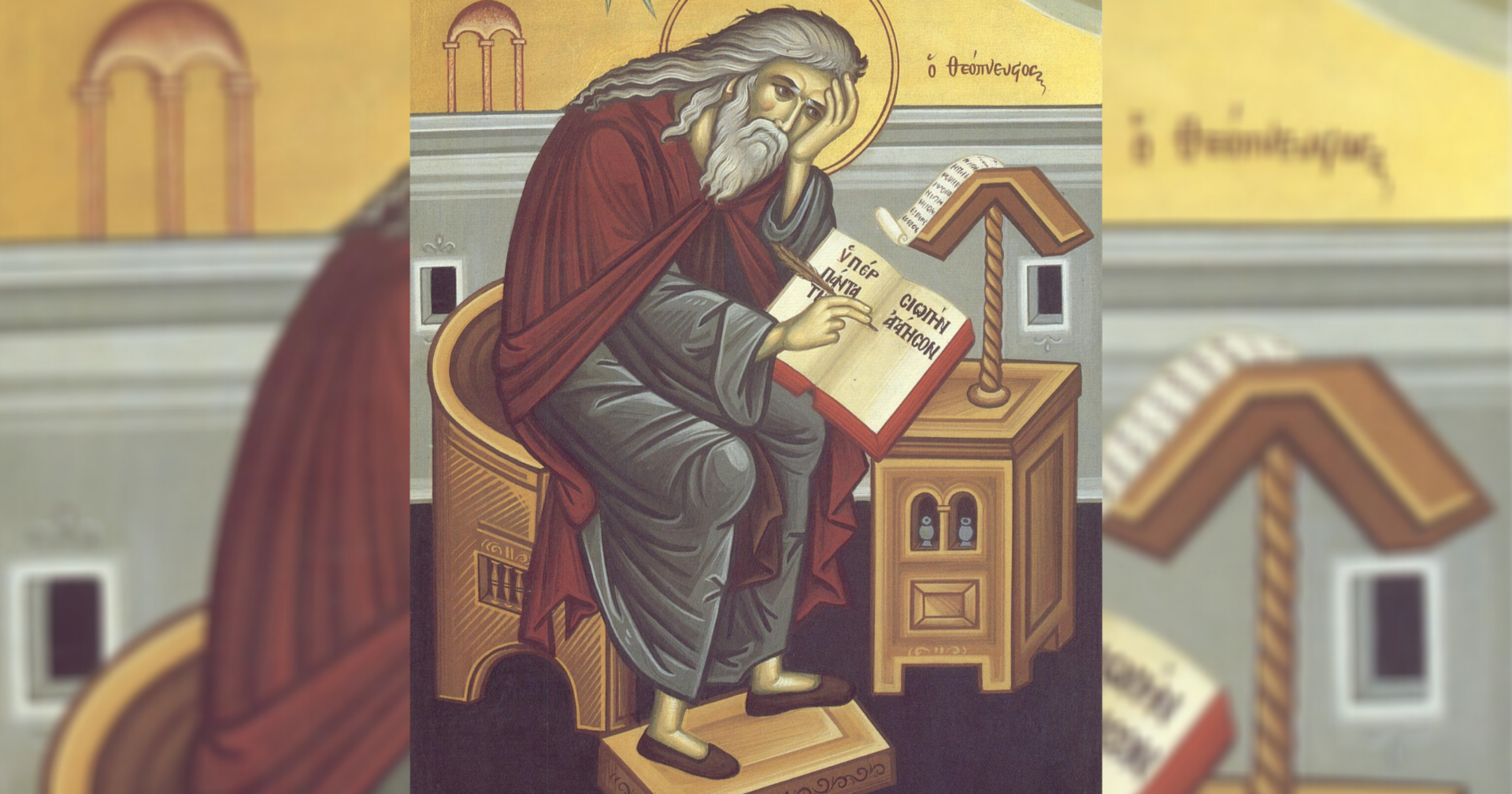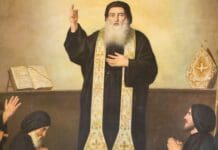By Phillip Rolfes
I’m going to teach you a little Syriac. Are you ready?
Well first, let me explain something. Syriac is a dialect of Aramaic, the language Jesus spoke. To this day there are Christians who preserve Syriac as their liturgical language. More specifically, there are Christians who preserve the West Syriac dialect, and there are Christians who preserve the East Syriac dialect.
My own Church—the Maronite Catholic Church—preserves the West Syriac dialect as their official liturgical language. Although we translate the majority of our liturgical services into the local vernacular (English here in the U.S., Arabic throughout the Middle East, Spanish in South America, etc.), portions of our Liturgy are almost always in Syriac. The prayers at the foot of the altar and the Consecration, for example, are supposed to always be prayed in Syriac.
There are even Syriac editions of the Bible that are the normative Biblical texts for the Syriac-speaking Churches.
Just as the Roman Church has the Latin Vulgate as her official translation of the Scriptures, and the Byzantine Churches have the Septuagint and Greek New Testament as their official edition of the Scriptures, so too do the Syriac-speaking Churches have either the Peshitto (East Syriac) or the Peshitta (West Syriac) editions of Scripture as their official editions.
A Saint By Any Other Name…
Okay.
Are you ready for that Syriac word now?
The word is “Mor” (or in East Syriac “Mar”). It means “Saint”. So, for example, you may here someone referring to “Mor Charbel” (Saint Charbel Maklouf, a popular Maronite hermit-saint whose feast day is celebrated in the Roman Church on July 24), or you might hear of “Mor Ephraim of Nisibis,” whom you may know as Saint Ephraim the Syrian — a Doctor of the Church!
Today I’d like to introduce you to Mor Isaac of Nineveh, often referred to as Saint Isaac the Syrian.
Not much is known of Mor Isaac’s life. He was born in the Qatar region of the Persian empire in the 7th Century, and entered the monastic life with his brother when he was still quite young.
When you read his writings, it’s obvious that Mor Isaac immersed himself in the lives and sayings of the Desert Fathers, as well as some of the great teachers of both the Greek and Syriac traditions — he often quotes from the Greek writers Evagrius of Pontus and Saint Basil the Great, as well as Syriac writers like Theodore of Mopsuestia, whom he considered the Biblical interpreter par excellence.
He was renowned for his learning and holiness, and was eventually ordained bishop of Nineveh (yeah, the Nineveh of “Jonah and the Big Whale” fame). But life as a bishop didn’t agree with him all that much, and so he resigned just five months after his ordination, and retired to the wilderness of Mount Matout.
Mor Isaac had a very deep love for the Scriptures. His Mystic Treatises and other writings are replete with quotes from the Bible and encouragements to read the Scriptures, along with the lives and writings of the saints, daily… even continually. Toward the end of his life he went blind, and some speculate that his blindness was the direct result of how much he read the Scriptures.
A Saint For Our Times?
Why am I introducing you to Mor Isaac?
I’m introducing you to him because, after several years of reading and praying with his writings, I firmly believe that Mor Isaac has some unique insights on the Faith and the spiritual life that can be very helpful in our own times. Personally, I’ve found a great deal of comfort from looking at today’s various crises in the Church and the world through the lens of Mor Isaac’s worldview.
So, I’d like to hash out some of his insights over the next few articles and try to reinterpret “the news” through his lens.
Especially important in our own times, I believe, are his insights on:
- Your life’s true purpose — Did you just think, “To know, love, and serve God in this life so as to be happy with Him in the next.”? Great! Let’s hash that out.
- The reasons many seemingly “saintly” men and women fall from the narrow path and embrace a very non-Christian life while keeping up their Christian appearances — Were they bad eggs from the start?
- Why all Christians should prayerfully study the Bible (and, by extension, the lives and writings of the saints) daily — You need fuel for the journey.
- The role of suffering or “trials” in the Christian life — No, it’s not God punishing you… Quite the contrary!
- The true nature of Hell — HINT: It’s not God’s vengeful punishment in Mor Isaac’s view.
The spirituality of the laity — We’re called to radical love as much as monks and nuns, just in a surprisingly different (and simple) way.
It’s my hope that by turning to Mor Isaac for wisdom in these times, you’ll find some hope that maybe our future isn’t quite as bleak as many would have you believe. Above all, it’s my hope that these next few articles will whet your appetite enough to pick up a copy of Mor Isaac’s Mystic Treatises for yourself and prayerfully work your way through them. His writings are difficult, but they are worth the effort. As Mor Isaac himself says:
“Reward is decreed for strife. There can be no mention of victory where there is no struggle.”
So let’s take some time to “struggle” through some of Mor Isaac’s wisdom. And, God willing, what a delightful struggle it will be!
 Phillip Rolfes is That Eastern Catholic Guy. A “canonical convert” from Roman Catholicism to Maronite Catholicism, Phillip loves researching and sharing the rich traditions of the Christian East. He lives in Cincinnati, OH. with his wife and four children, and is parishioner at St. Anthony of Padua Maronite Catholic Church.
Phillip Rolfes is That Eastern Catholic Guy. A “canonical convert” from Roman Catholicism to Maronite Catholicism, Phillip loves researching and sharing the rich traditions of the Christian East. He lives in Cincinnati, OH. with his wife and four children, and is parishioner at St. Anthony of Padua Maronite Catholic Church.

















